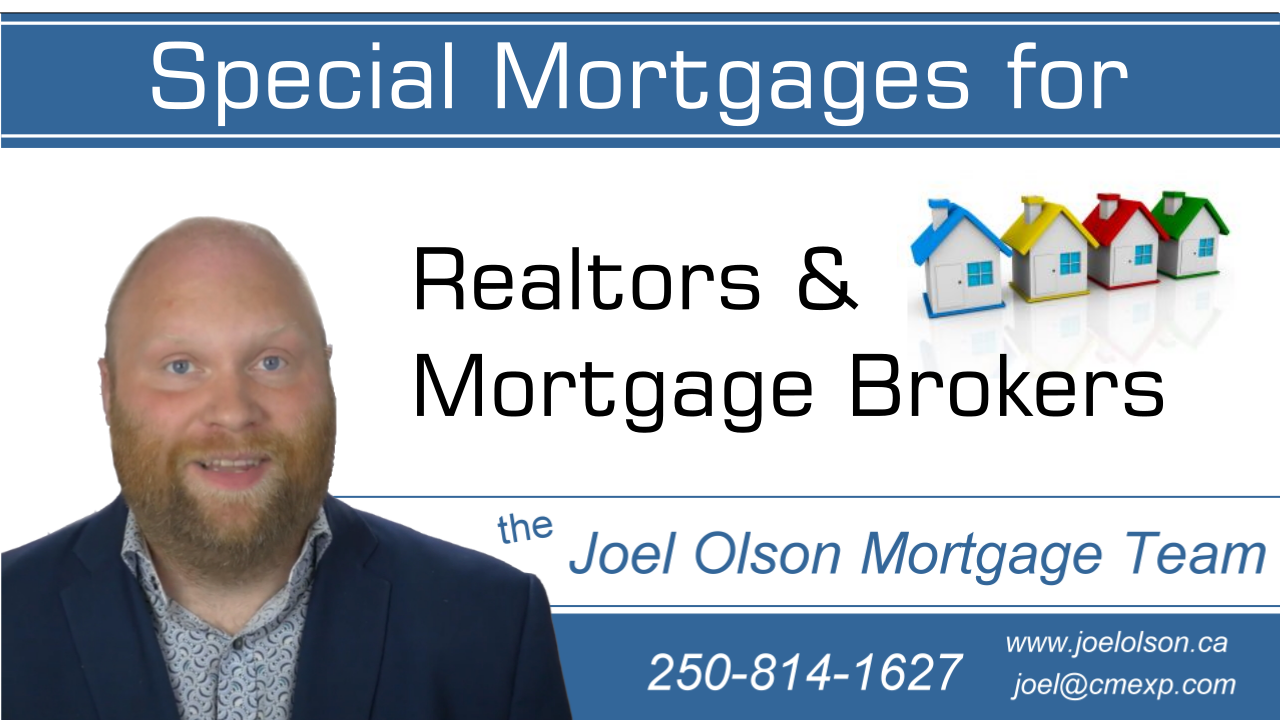Are there special mortgages for realtors, brokers and commissioned sales people?

It's interesting, really when you think about it, both me and yourself, work towards helping people achieve homeownership,
whether that's a home they're going to live in, or an investment property that's going to benefit them financially for many years to come.
It's amazing that many of our clients have an easier time being approved for a mortgage than we do, even when we are sometimes in a much better financial position.
So what is available in terms of mortgages for commissioned salespeople?
In particular, what is available in terms of mortgages for people like me and you, realtors and mortgage brokers?
Did you know that there are actual mortgages that exist with the idea of allowing us to benefit from many tax advantages, like keeping money in our corporations, or writing off a significant amount of our expenses so that we are still able to buy a home while claiming much, much less on our taxes.
Sure, there can be some variety in interest rates, but even the very worst mortgage can be as low as two to 3% of our interest rate, and enables you to verify your income by only showing your commission statements and six months bank statements.
So let's review.
Here are a few ways that a realtor can qualify for a mortgage.
Now this applies if you're buying a primary residence or if you're buying rental properties.
Yes, we do go off your taxes by using a two year average of your income but many times this gets us nowhere near what's needed to qualify for a mortgage.
But we also have programs where we look at the retained earnings in your company or what net income you have after taxes and some of that income is added back allowing you to qualify for much more than your T1 General would allow.
After using those expenses, if we don't get you to a healthy amount of money, or perhaps you've had some of your better years this year or previous years and you have not yet claimed a tax return or done your corporate financials for those years to show, we can still qualify you by basing it on your current year and your obvious success you've had thus far.
We have many lenders out there that are using a simple six month bank statement showing the deposits of your commissions to qualify you for a mortgage. Now as I mentioned previously, this does not mean and exorbitant interest rate. This does actually mean an interest rate that is often 2 to 3% enable you to take advantage of a very, very good market and to get into a house and get into some savvy deals yourself.
As always, it makes the most sense to work with someone really qualified to navigate different properties and different loan programs to allow you to take advantage of what you're seeing in front of your eyes... clients taking advantage of.
So if we can help you with a realtor or mortgage, please let us know as we love helping people just like us!
Schedule a time on my calendar here to explore options:
https://calendly.com/joel-20/discovery-zoom-call





